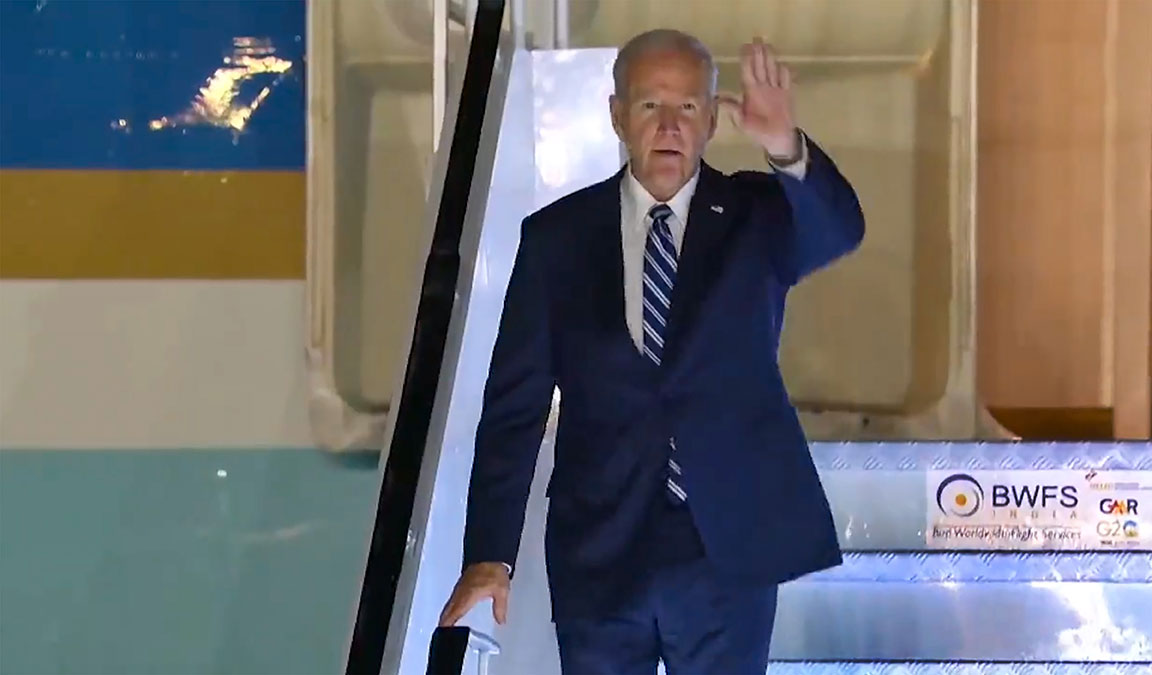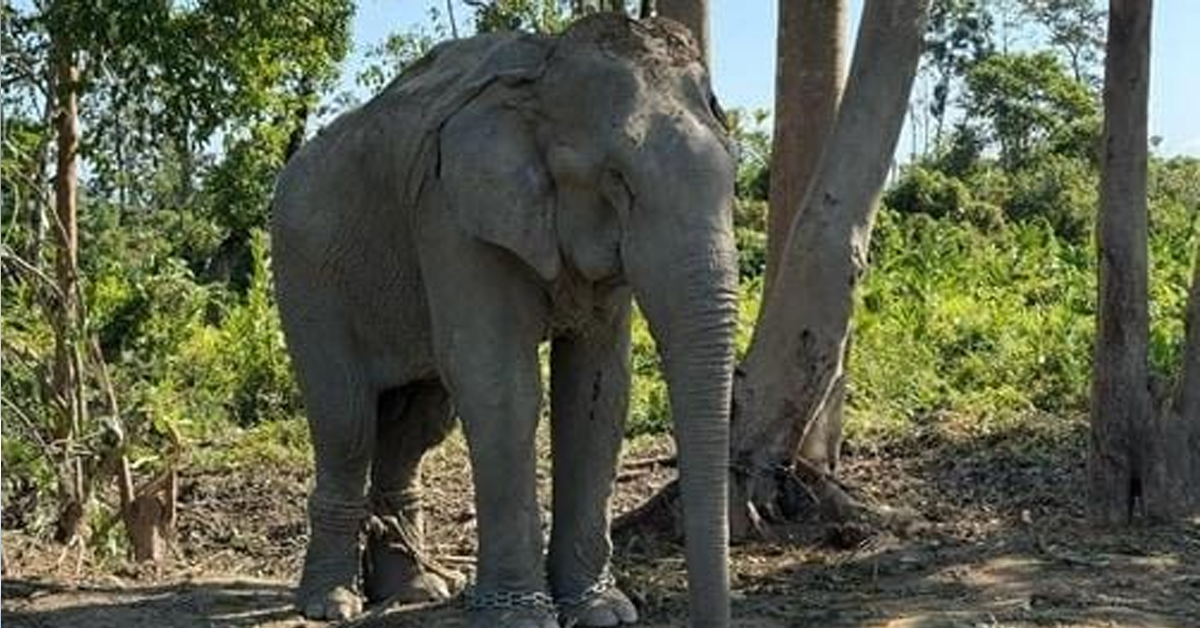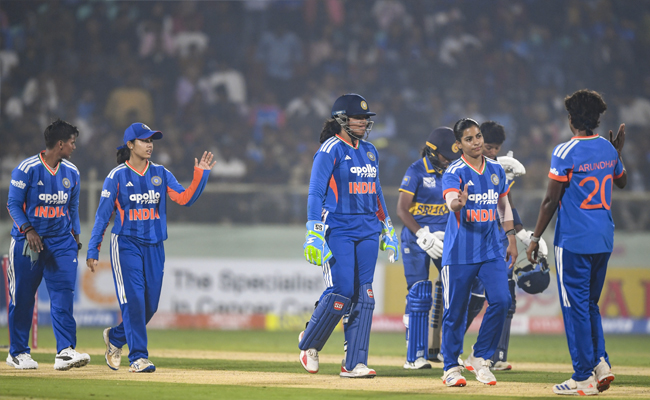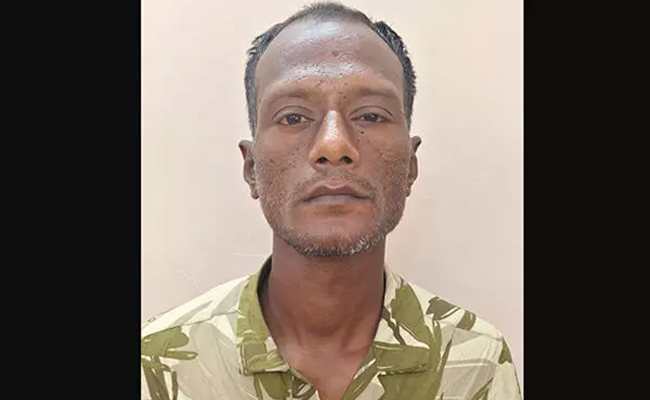New Delhi(PTI): US President Joe Biden arrived here on Friday to participate in the G20 Summit to be chaired by Prime Minister Narendra Modi.
Biden is scheduled to have a bilateral meeting with Modi on Friday itself. During the meeting, the two leaders are likely to review the progress made on the decisions that they took during the prime minister's official state visit to Washington in June.
The US president will follow COVID-19 guidelines of the Centers for Disease Control and Prevention (CDC) during his visit for the G20 Summit, the White House has said.
First Lady Jill Biden, 72, tested positive for COVID-19 on Monday. President Biden, 80, was tested for the virus both on Monday and Tuesday but his results were negative.
India is set to make a dash for the goal line at the two-day summit starting Saturday in addressing some of the complex global challenges such as concerns of the Global South, consequences of the Ukraine conflict, gloomy economic scenario, and fostering inclusive growth amid a fragmented geopolitical environment.
The G20 member countries represent around 85 per cent of the global GDP, over 75 per cent of the global trade and about two-thirds of the world population.
The grouping comprises Argentina, Australia, Brazil, Canada, China, France, Germany, India, Indonesia, Italy, Japan, the Republic of Korea, Mexico, Russia, Saudi Arabia, South Africa, Turkey, the UK, the US and the European Union (EU).
Let the Truth be known. If you read VB and like VB, please be a VB Supporter and Help us deliver the Truth to one and all.
Pilibhit (PTI): A 19-day-old elephant calf, brought from Bijnor, was placed under care at the Pilibhit Tiger Reserve (PTR) on Sunday, an official said and added that the calf got separated from its mother in the forest area of Bijnor.
The calf was born on December 2 in the Bijnor forest area and got separated from its mother shortly after birth, the official said.
The forest department made several attempts to reunite it with its mother, but without any success. To ensure the calf's safety and better care, it was decided to transfer it to the Pilibhit Tiger Reserve on the instructions of senior officials.
On Saturday, Deputy Director Manish Singh received the calf. Special arrangements have been made in the reserve for its care. It has been kept in a safe and clean environment to provide it with a natural setting and protect it from external noise and disturbances.
Singh told reporters that raising an 19-day-old calf is challenging.
It requires a special diet as a substitute for mother's milk and constant monitoring.
He said a special team has been formed to provide 24-hour care. Since the calf is very young, it is being cared for like a newborn baby.
According to Singh, the primary responsibility for monitoring the calf's health has been entrusted to PTR's veterinarian, Dr Daksh Gangwar. Under his supervision, a complete record of the calf's health checkups, diet, and body temperature is being maintained. The team is ensuring that the calf does not contract any infection.





